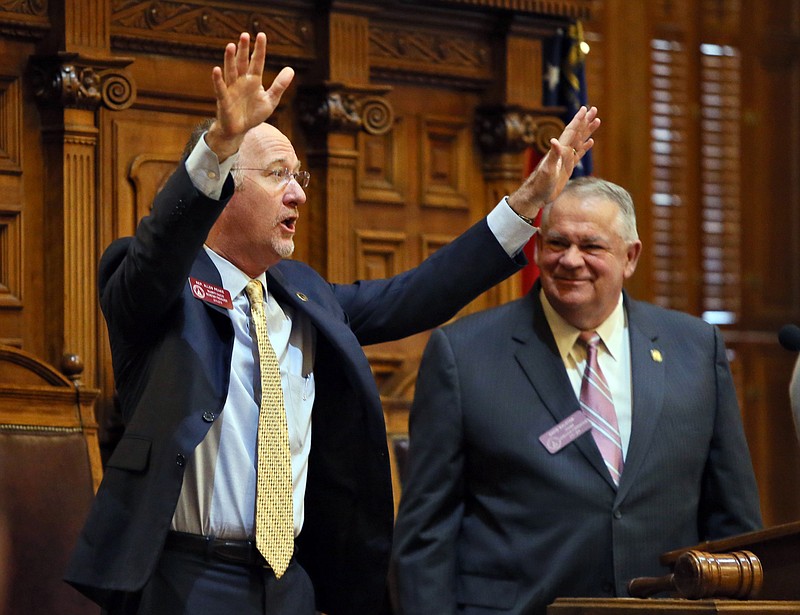ATLANTA -- A senator said Monday that he has filed a new bill to legalize medicinal marijuana in Georgia that would avoid legal problems that could arise under the House version, which passed overwhelmingly last week.
Sen. Lindsey Tippins of Cobb County said his proposal would set up a four-year study that would be open only to children under 18 who have seizures that have not been responsive to medication.
House Bill 1, sponsored by Rep. Allen Peake of Macon, calls for limited quantities of cannabis oil to be used by prescription to treat seizure disorders and eight other major medical conditions. Tippins' measure limits the study to epilepsy.
"I'm just trying to do it right and legal," Tippins said. "My concern with House Bill 1 is I believe it applies a criminal-justice remedy to a medical problem. I believe the criminal-justice remedy being proposed is faulty and misleading."
Children with seizure disorders could sign up "if they meet the enrollment criteria," he said. "House Bill 1 says we're going to grant state immunity from prosecution for people who possess up to 20 ounces of cannabidiol oil."
The House bill would grant immunity from state law, not federal, he said.
"The only reason states like Colorado can do what they are doing is the current administration has issued a memorandum saying they are not going to prosecute marijuana possession," Tippins said.
He said the federal government could decide to enforce the law and prosecute and that House Bill 1 "is encouraging people to break the current drug laws of the United States."
His bill does not mention any of the eight other medical conditions spelled out in Peake's bill: cancer, Crohn's disease, fibromyalgia, Lou Gehrig's disease (amyotrophic lateral sclerosis), mitochondrial disease, multiple sclerosis, Parkinson's disease and sickle cell anemia.
Advocates of Peake's bill said they were disappointed with the Senate version. Peake's measure sets no age limits and would legalize possession of up to 20 ounces of cannabis oil that contains no more than 5 percent of THC, the main psychoactive constituent.
To obtain it, a person would have to obtain a recommendation from a physician and a registry card from the state Department of Public Health.
Peake said the Senate bill "leaves a lot of people behind" and that many Georgians who have moved to other states for cannabis oil treatment would remain "refugees."
He said even if the clinical trial is expanded, it wouldn't help 300,000 cancer patients.
Katie Harrison, 34, of Hall County, who sat through a recent hearing at the Capitol with her son Hawk, 2, on her lap, said she'd move to another state if necessary. Hawk had a brain hemorrhage at 3 weeks and has had frequent seizures since.
"We were blindsided by the Senate bill and feel it's part of a political game by the Senate to gut House bill 1," said Harrison, a leading advocate of the Georgia's Hope organization, which has thousands of members.
But Tippins said any marijuana extract would be illegal under federal laws.
Children who qualify for the study, conducted by Georgia Regents University, formerly known as the Medical College of Georgia, could participate at specified facilities in Atlanta, Augusta, Alpharetta and Savannah.
